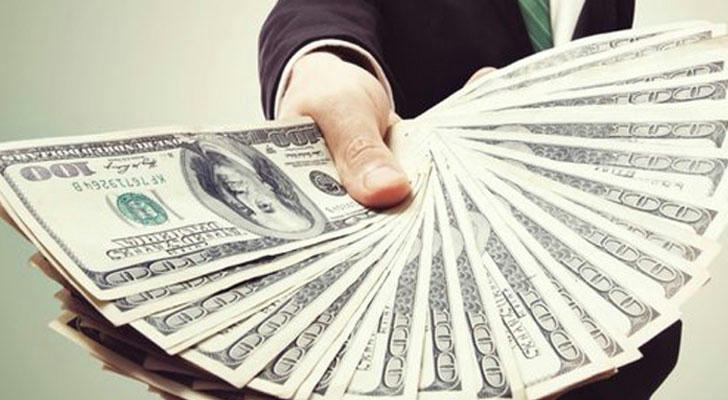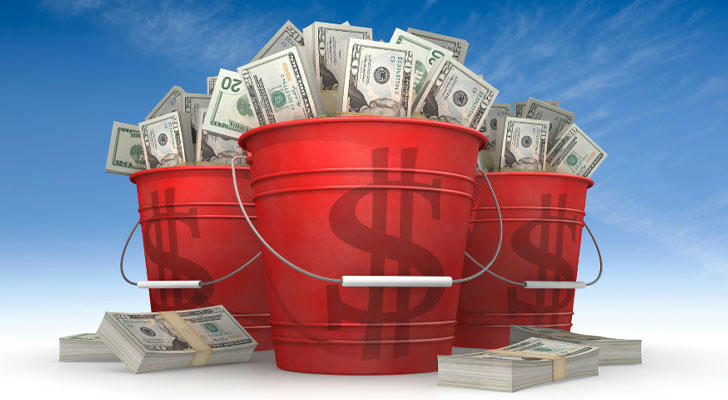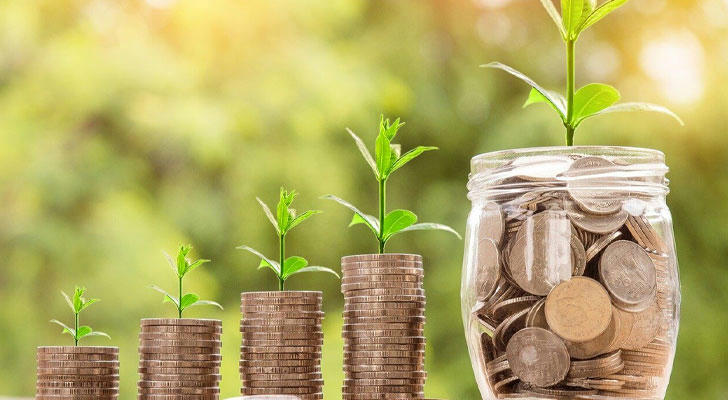Why Saving More Could Actually Make You Poorer: Unmasking the Inflation Trap
Imagine This…
You work hard, set aside money every month, and watch your savings grow. You tell yourself, “I’m doing the right thing.” After all, saving money is what responsible adults do, right?
But here’s a little-known truth: If your money is just sitting in a regular savings account, you could actually be losing purchasing power year after year. In other words, saving without earning a sufficient return can leave you worse off in real terms.

What Exactly Is Inflation?
Inflation is like a silent thief that slowly erodes the value of your money over time. According to the U.S. Bureau of Labor Statistics (BLS), the Consumer Price Index (CPI)—a common measure of inflation—has averaged roughly 2.5% annually over the past decade, though it can spike even higher at times. When the prices of everyday essentials—groceries, gas, rent, or coffee—increase, your dollars don’t stretch as far as they used to.
The problem is, inflation doesn’t vanish; it quietly eats away at your savings every single day.
The “Saving Means Winning” Myth
Here’s the catch:
Most people keep their emergency fund or savings in traditional bank accounts that offer very low interest rates—often below 1%. Recent Federal Reserve data shows the average savings account interest rate hovered around a mere 0.06% for much of the last several years.
Meanwhile, inflation often runs higher, typically between 2% and 3% annually (BLS CPI data). That means:
- Your savings grow by 0.06% (if you’re lucky),
- But inflation chips away 2.5%.
Effectively, you’re losing about 2.44% of your money’s purchasing power every year.

Case Study #1: Sarah’s Emergency Fund
Sarah kept $10,000 in her savings account for emergencies. After five years, her balance grew slightly to $10,030 thanks to interest. Sounds good, right? But during that same period, prices for groceries, gas, and rent rose roughly 3% annually.
Her $10,030 today only has the buying power of about $8,630 compared to when she first saved it.
In other words, Sarah saved money but actually got poorer in terms of what it could buy.
Why Does This Happen?
To understand this better, picture your money as a bucket collecting rain (your income and savings). Inflation acts like a leak in the bucket—no matter how much you pour in, some water escapes.
If your money isn’t growing faster than inflation, your bucket never really fills up.
Inflation vs. Interest: The Ongoing Battle
Your savings must outpace inflation—meaning your returns need to be higher than inflation’s rate. Otherwise, your money loses value.
For decades, Americans trusted that putting money in the bank was enough. But nowadays? Bank interest rates often fall short of keeping up with rising prices.
Case Study #2: Mark’s Checking Account Surprise
Mark preferred to keep his funds in a checking account for easy access. Over ten years, he barely thought about interest or inflation. His balance increased slightly, but prices doubled during that time (CPI data shows around a 100% increase in certain high-inflation periods).
Mark’s paycheck didn’t rise at the same rate, so his lifestyle started to feel squeezed. He realized his “safe” money was quietly shrinking.
So, What Can You Do?
This doesn’t mean saving isn’t important—it means how you save matters more than ever.
Here are some strategies:
Invest wisely: Explore options that historically outpace inflation, such as stocks, real estate, or Treasury Inflation-Protected Securities (TIPS). Morningstar data shows the S&P 500 has averaged about a 10% annual return over the long term, well above inflation.
Use higher-yield accounts for emergency funds: Consider high-yield savings accounts or short-term CDs. Some banks like Ally or Marcus have offered rates near 4-5% recently.
Stay aware of inflation: Know how rising costs affect your budget and savings.
Diversify: Avoid putting all your money in one place, especially if it loses value over time.
Case Study #3: Jenny’s Investment Journey
Jenny began investing modest amounts in index funds ten years ago. Despite market ups and downs, her investments returned about 7-9% annually (based on Standard & Poor’s historical data), comfortably beating inflation.
Today, her money grows in real terms—her savings can buy more, not less, than when she started.

What About Cash? Is It Still King?
Cash is convenient but, in an inflationary environment, it’s only a short-term fix—not a long-term strategy.
It makes sense to keep some cash handy for daily expenses or emergencies. But holding large amounts of cash for years without growth means losing value.
Inflation Isn’t Just Numbers—It Impacts Lives
Inflation affects more than just your bank balance:
- Housing costs
- Gas prices
- Food expenses
- Healthcare fees
As prices climb, many people feel the financial squeeze—especially those on fixed incomes or with limited investments.
Economists like Nobel laureate Richard Thaler highlight how inflation deeply influences consumer behavior, forcing tougher financial decisions and eroding security over time.
The Bottom Line
Saving money is a powerful habit, but only if your savings grow at or above the rate of inflation. Otherwise, you’re losing value without realizing it.
Educating yourself about inflation, investments, and smarter saving methods is key to protecting your financial future.
Ready to Make Your Money Work Harder?
Remember:
- Inflation erodes static cash.
- Investing helps you fight back.
- Awareness is your first step toward financial security.
If you ever feel like no matter how much you save, your financial goals remain out of reach, you’re not alone. Inflation plays a big part in that hidden challenge.
Understanding inflation is the secret to making your savings truly grow—not just in dollars but in real buying power.
